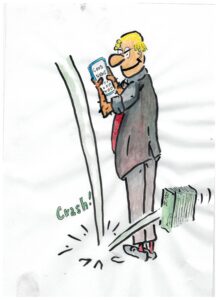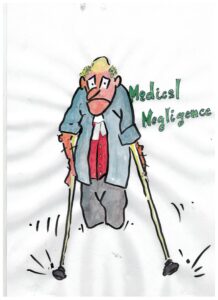Legal Nature of a Share in a Company?
- 2014-04-26
- By whiggs
- Posted in Banking and Finance Law
In Sydney Futures Exchange Ltd v Australian Stock Exchange (1995) 56 FCR 236; (1995) 128 ALR 417; (1995) 16 ACSR 148 Lockhart J, at 255-256 of 56 FCR, 166-167 of 16 ACSR analysed the nature of a share in a company as follows:
“A share is a right to a specified amount of the share capital of a company, carrying with it rights and liabilities when the company is a going concern and in the course of its winding up. A share is a chose in action entitling its holder to the rights and subjecting him to the liabilities provided by the memorandum and articles of association and by legislation. In Borland’s Trustee v Steel Bros & Co Ltd [1901] 1 Ch 279 Farwell J described the nature of a share in these terms (at 288):
“A share is the interest of a shareholder in the company measured by a sum of money, for the purpose of liability in the first place, and of interest in the second, but also consisting of a series of mutual covenants entered into by all the shareholders interest in accordance with s 16 of the Companies Act 1862 (UK). The contract contained in the articles of association is one of the original incidents of the share. A share … is an interest measured by a sum of money and made up of various rights contained in the contract, including the right to a sum of money of a more or less amount.”
This passage was approved by Lord Russell of Killowen in Inland Revenue Commissioners v Crossman [1937] AC 26 at 66.
The rights attaching to a share include the right to participate in dividends whilst the company is a going concern and the right to participate in the distribution of assets available for the shareholders upon a winding up. They also include the right to receive capital in excess of the company’s wants which the company resolves to distribute upon a reduction of capital: Archibald Howie Pty Ltd v Commissioner of Stamp Duties (NSW) (1948) 77 CLR 143 per Williams J at 156.
In Colonial Bank v Whinney (1885) 30 Ch D 261 Fry LJ said (at 286-287):
“What, then is the character of a share in a company? Is it in its nature a chose in possession, or a chose in action? Such a share is, in my opinion, the right to receive certain benefits from a corporation, and to do certain acts as a member of that corporation; and if those benefits be withheld or those acts be obstructed, the only remedy of the owner of the share is by action. Of the share itself, in my view, there can be no occupation or enjoyment; though of the fruits arising from it there may be occupation, enjoyment and manual possession. Such a share appears to me to be closely akin to a debt which is one of the most familiar of choses in action; no action is required to obtain the right to the money in the case of the debt, or the right to the dividends or other accruing benefits in the case of the share; but an action is the only means of obtaining the money itself or the other benefits in specie, the right to which is called in one case a debt and in the other case a share. In the case alike of the debt and of the share, the owner of it has, to use the language of Blackstone, a bear [semble bare] right without any occupation or enjoyment.
A debt, no doubt differs from a share in one respect, that it confers generally a more limited right to the share, and once paid it is at an end, but this distinction appears to me immaterial for the purpose now in hand.”
Although Fry LJ was in dissent in the Court of Appeal, the judgment of the majority was reversed by the House of Lords and reported as Colonial Bank v Whinney (1886) 11 App Cas 426.
Under the Corporations Law a share is personal property and is transferable or transmissible as provided by the articles, and, subject to the articles, is capable of devolution by will or by operation of law: section 105(1).
Thus, shares in a company are personal property; but they are choses in action, not choses in possession. Personal property may of course be partly in possession and partly in action, for example, promissory notes and bills of exchange. The note or bill itself is a chose in possession, but the debt secured by it is a chose in action.
In White v Shortall [2006] NSWSC 1379 Campbell J agreed with the following passage from Halsbury’s Laws of England (4th ed, 1981), Vol 35, in para 1205:
“For general purposes, however, the expression `chose in action’ is now used in order to distinguish those chattel interests which, unlike choses in possession, are incapable of transfer by delivery of the subject matter in the manner described subsequently [ie par 1253 et seq].”
The statutory provision that now states the nature of a share is section 1070A Corporations Act 2001 which provides:
“(1) A share… :
(a) is personal property; and
(b) is transferable or transmissible as provided by:
(i) the company’s … constitution; or
(ii) the operating rules of a prescribed CS facility if they are applicable; and
(c) is capable of devolution by will or by operation of law.
(2) Paragraph (1)(c) has effect subject to:
(a) in the case of a company:
(i) the company’s constitution (if any); and
(ii) any replaceable rules that apply to the company; and
(iii) the operating rules of a prescribed CS facility if they apply to the share or interest; and
(b) …
(3) Subject to subsection (1):
(a) the laws applicable to ownership of, and dealing with, personal property apply to a share … as they apply to other property; and
(b) equitable interests in respect of a share, interest of a member in a company or other interest of a person in a registered scheme may be created, dealt with and enforced as in the case of other personal property.”
SEARCH BLOG POSTS
LATEST BLOG POSTS
- Updated product safety mandatory reporting guidance for suppliers now available
- Pleading fraud – cause and effect is essential
- Does the Trustee’s right of indemnity have priority over the right of beneficiaries in relation to assets?
- Rules of war (in a nutshell) | The Laws Of War
- MH370 Final Report
Past Blog Posts
- December 2021
- September 2021
- August 2021
- May 2021
- April 2021
- March 2021
- August 2020
- February 2020
- September 2019
- February 2019
- December 2018
- July 2018
- April 2018
- December 2017
- May 2017
- February 2017
- December 2016
- November 2016
- October 2016
- September 2016
- August 2016
- April 2016
- March 2016
- October 2015
- September 2015
- August 2015
- May 2014
- April 2014
- March 2014
- January 2014
Categories
- Appeals
- Artificial Intelligence
- Aviation law
- Banking and Finance Law
- Blogs
- Civil Liability Act
- Class Actions
- Coding for lawyers
- common law
- Consumer Claims (TPA)
- Contract Law
- Contractual Interpretation
- Criminal law
- Deeds
- Docassemble
- duty of care
- Engineering Law
- Equity
- Evidence
- Exclusion Clauses
- Execution of documents
- Expert Witness
- featured
- Financial Services
- Fraud
- Fundraising (Chapter 6D)
- General comment
- Home Building Law
- Insurance
- Legal drafting
- Local Court
- Medical Negligence
- MH370
- Motor Accidents
- Negligence
- Occupiers negligence
- Other
- Personal Injury
- Personal Property Securities (PPSA)
- Pleading
- Practice & Procedure
- Products Liability
- Property
- Real Property
- Reasons for a decision
- Securitisation
- Security (Mortgages & Charges)
- Sentencing
- Swaps & Derivatives
- Teaching
- Transactional Law
- Transfer of financial assets in transactions
- Trusts & Trustee Law
- Uncategorized
- War and Weaponry
- Witnesses
SEARCH BLOG POSTS
LATEST BLOG POSTS
- Updated product safety mandatory reporting guidance for suppliers now available
- Pleading fraud – cause and effect is essential
- Does the Trustee’s right of indemnity have priority over the right of beneficiaries in relation to assets?
- Rules of war (in a nutshell) | The Laws Of War
- MH370 Final Report
Past Blog Posts
- December 2021
- September 2021
- August 2021
- May 2021
- April 2021
- March 2021
- August 2020
- February 2020
- September 2019
- February 2019
- December 2018
- July 2018
- April 2018
- December 2017
- May 2017
- February 2017
- December 2016
- November 2016
- October 2016
- September 2016
- August 2016
- April 2016
- March 2016
- October 2015
- September 2015
- August 2015
- May 2014
- April 2014
- March 2014
- January 2014
Categories
- Appeals
- Artificial Intelligence
- Aviation law
- Banking and Finance Law
- Blogs
- Civil Liability Act
- Class Actions
- Coding for lawyers
- common law
- Consumer Claims (TPA)
- Contract Law
- Contractual Interpretation
- Criminal law
- Deeds
- Docassemble
- duty of care
- Engineering Law
- Equity
- Evidence
- Exclusion Clauses
- Execution of documents
- Expert Witness
- featured
- Financial Services
- Fraud
- Fundraising (Chapter 6D)
- General comment
- Home Building Law
- Insurance
- Legal drafting
- Local Court
- Medical Negligence
- MH370
- Motor Accidents
- Negligence
- Occupiers negligence
- Other
- Personal Injury
- Personal Property Securities (PPSA)
- Pleading
- Practice & Procedure
- Products Liability
- Property
- Real Property
- Reasons for a decision
- Securitisation
- Security (Mortgages & Charges)
- Sentencing
- Swaps & Derivatives
- Teaching
- Transactional Law
- Transfer of financial assets in transactions
- Trusts & Trustee Law
- Uncategorized
- War and Weaponry
- Witnesses




